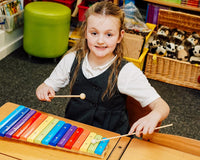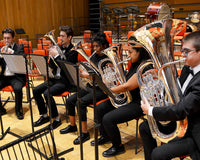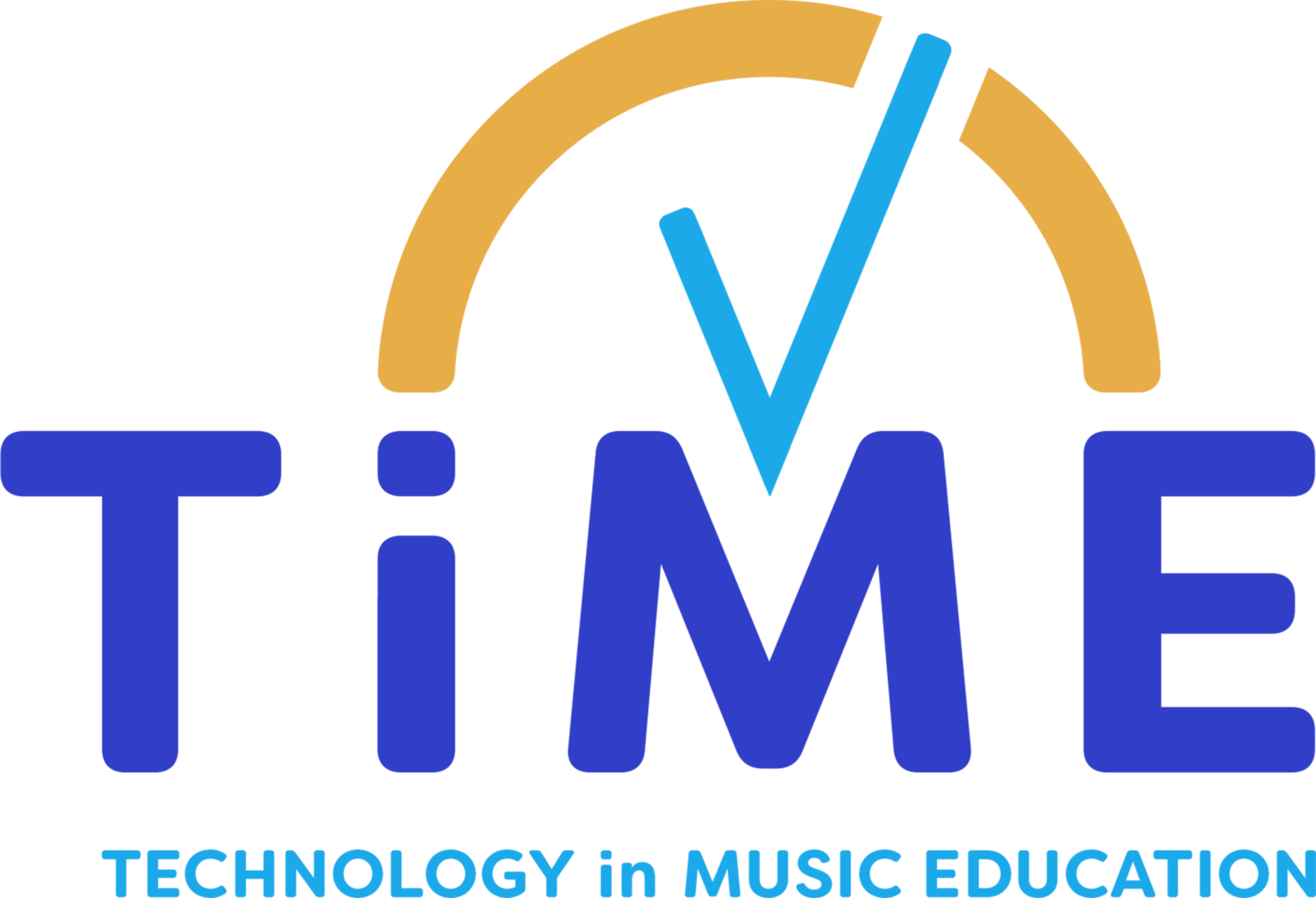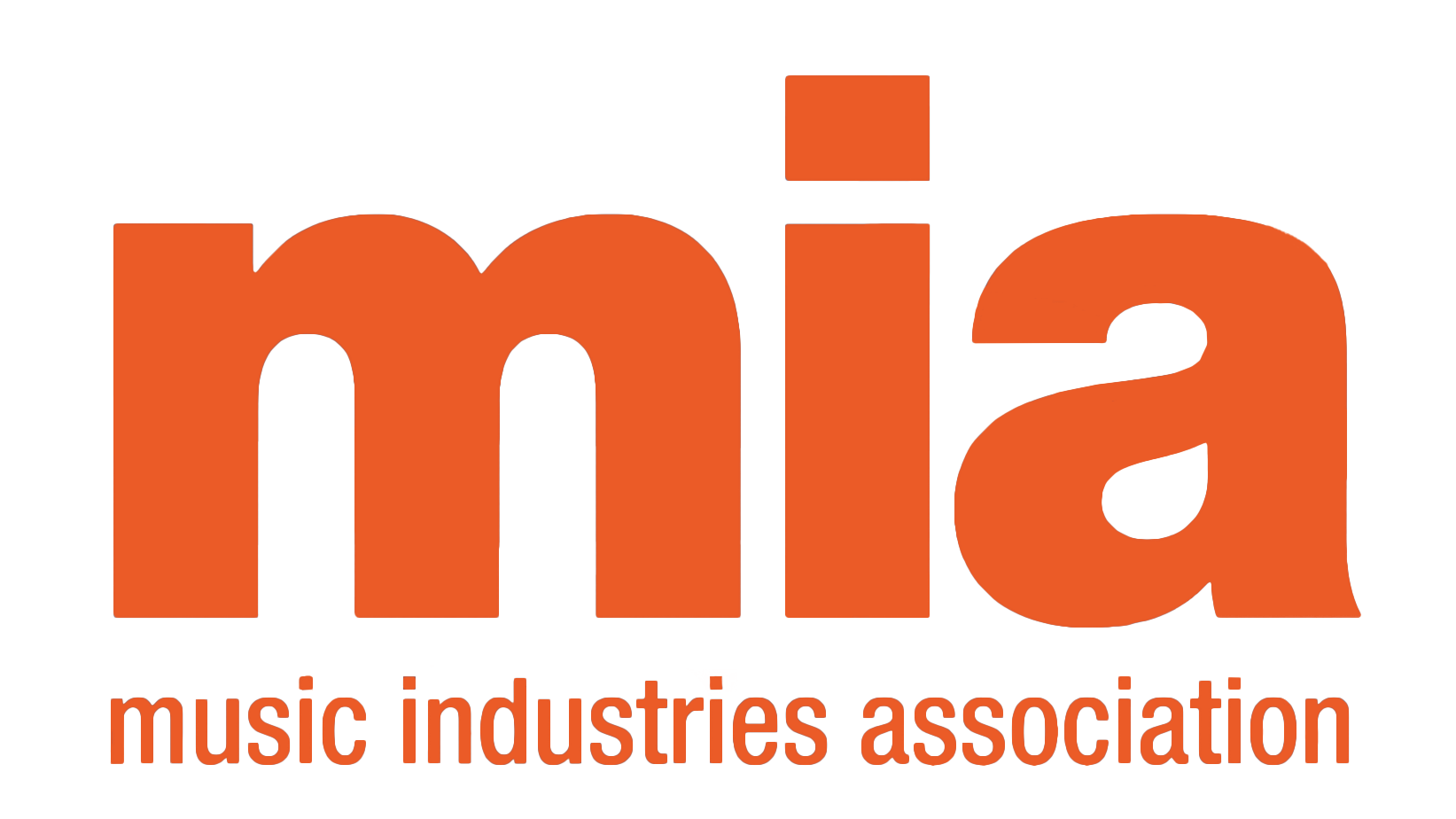There are many reasons why experts recommend that kids have music lessons. Research has shown that education in music strengthens a child’s comprehension in other areas of study.
According to Research

According to Montessori, music can prepare your child’s brain for learning in academics, social settings and growing emotionally.
Researchers at the National Center for Biotechnology Information agree, found that children who take music lessons perform better on other tasks that involve fine motor skills, auditory discrimination, and rhythm perception.
In 1994 psychologist Fran Rauscher and physicist Gordon Shaw at the University of California-Irvine conducted a study to see if there was a connection between learning music and learning higher maths and science skills. For their experiment they had three-year-olds participate in vocal or keyboard lessons. Their spatial skills were then compared against those who did not participate in lessons. After eight months, those who received music lessons increased their spatial intelligence by 46%. The group who didn’t receive music lessons spatial intelligence increased by only 6%
Dr. Edwin Gordon of The Gordon Institute for Music Learning said that a child’s highest level of music aptitude occurs just after birth. He argues that for this reason, the earlier a child starts music lessons, the better. According to Gordon, if a child starts music lessons too late, “some … of the unused synapses that might have been used for developing sensitivity to music may move to support another sense or medium, such as the visual or verbal.” His ideal window of opportunity for music lessons is from birth to age nine.
Another neuroscience educator, Dr. Dee Joy Coulter, notes that the movement, musical games and songs children are exposed to in early childhood constitute “brilliant neurological exercises” that help children learn sensory motor skills, speech patterns, and movement skills. If music education is introduced in early childhood, educators say that for it to be effective, it must include four fundamental elements:
- Singing
- Dancing
- Listening
- Playing Instruments
The short answer
So, when should your child begin taking music lessons? In short, the answer to this largely depends on your child. On their likes, dislikes and temperament. Also, the availability of quality music lessons in your area or
online is important.
Now, onto the longer answer:
What does learning to play an Instrument do for a Child?
Music Education can help to enhance communication and trust between children and adults. Music educator Lorna Heyge notes that music lessons can create enormous benefits for a child. These include:
- Teaches them how to communicate their own creativity and enjoyment
- Teaches them how to develop motor skills and impulse control
- Promotes their attention to tasks
- Builds social and emotional skills
- Enhances bonding between adults and children
- Augments brain development
What Music should Children learn and at what age?
Of course, there is no definitive guide to what music or instruments your child should be introduced to at certain ages. Music educators agree, however, that some skills/instruments are better suited to particular ages groups.
 Age 6 Months to 2 Years
Age 6 Months to 2 Years
Music educators recommend “mommy and me” musical classes for this age group. This requires active participation from parents. These classes help children to engage with their parents and each other.
Age 3 to 4 Years
Music classes for this age group usually feature movement, singing and props.
Age 5 to 7 Years
“Real” music lessons are usually recommended for children around this age. Group instrument lessons are particularly popular.
Age 7 to 9 Years
String instruments like the guitar can be introduced at this age, as can drums. If a child's already studied piano for a year or so, learning another instrument should now be a little easier. Individual or group lessons can be begun in this age group.
Ages 10 and Up
Group lessons are still popular at this age. This is a good age for your child to begin to participate in groups. School bands or orchestras are often a good staring point. This not only provides a musical education for the child but also a valuable social experience.
Enforcing Practice and Commitment

No matter what age your child starts music lessons, practice is vital to success. The most important thing a parent can do is to make sure practice consistent and a part of each day. Rewards often work with younger children. After all, who wouldn't practice for 20 mins a day with the promise of an ice cream at the end of the week?
Commitment is also important. Try to avoid your child hopping from one instrument to the next. Make your child commit to taking lessons on that instrument for at least one school year. This way they can real get a feel for it.
With a little work on your part as a parent, you can make music education a welcome and eagerly anticipated part of your child’s life.
Like what you've read from Ian?
 According to Montessori, music can prepare your child’s brain for learning in academics, social settings and growing emotionally.
Researchers at the National Center for Biotechnology Information agree, found that children who take music lessons perform better on other tasks that involve fine motor skills, auditory discrimination, and rhythm perception.
In 1994 psychologist Fran Rauscher and physicist Gordon Shaw at the University of California-Irvine conducted a study to see if there was a connection between learning music and learning higher maths and science skills. For their experiment they had three-year-olds participate in vocal or keyboard lessons. Their spatial skills were then compared against those who did not participate in lessons. After eight months, those who received music lessons increased their spatial intelligence by 46%. The group who didn’t receive music lessons spatial intelligence increased by only 6%
Dr. Edwin Gordon of The Gordon Institute for Music Learning said that a child’s highest level of music aptitude occurs just after birth. He argues that for this reason, the earlier a child starts music lessons, the better. According to Gordon, if a child starts music lessons too late, “some … of the unused synapses that might have been used for developing sensitivity to music may move to support another sense or medium, such as the visual or verbal.” His ideal window of opportunity for music lessons is from birth to age nine.
Another neuroscience educator, Dr. Dee Joy Coulter, notes that the movement, musical games and songs children are exposed to in early childhood constitute “brilliant neurological exercises” that help children learn sensory motor skills, speech patterns, and movement skills. If music education is introduced in early childhood, educators say that for it to be effective, it must include four fundamental elements:
According to Montessori, music can prepare your child’s brain for learning in academics, social settings and growing emotionally.
Researchers at the National Center for Biotechnology Information agree, found that children who take music lessons perform better on other tasks that involve fine motor skills, auditory discrimination, and rhythm perception.
In 1994 psychologist Fran Rauscher and physicist Gordon Shaw at the University of California-Irvine conducted a study to see if there was a connection between learning music and learning higher maths and science skills. For their experiment they had three-year-olds participate in vocal or keyboard lessons. Their spatial skills were then compared against those who did not participate in lessons. After eight months, those who received music lessons increased their spatial intelligence by 46%. The group who didn’t receive music lessons spatial intelligence increased by only 6%
Dr. Edwin Gordon of The Gordon Institute for Music Learning said that a child’s highest level of music aptitude occurs just after birth. He argues that for this reason, the earlier a child starts music lessons, the better. According to Gordon, if a child starts music lessons too late, “some … of the unused synapses that might have been used for developing sensitivity to music may move to support another sense or medium, such as the visual or verbal.” His ideal window of opportunity for music lessons is from birth to age nine.
Another neuroscience educator, Dr. Dee Joy Coulter, notes that the movement, musical games and songs children are exposed to in early childhood constitute “brilliant neurological exercises” that help children learn sensory motor skills, speech patterns, and movement skills. If music education is introduced in early childhood, educators say that for it to be effective, it must include four fundamental elements:
 Age 6 Months to 2 Years
Music educators recommend “mommy and me” musical classes for this age group. This requires active participation from parents. These classes help children to engage with their parents and each other.
Age 3 to 4 Years
Music classes for this age group usually feature movement, singing and props.
Age 5 to 7 Years
“Real” music lessons are usually recommended for children around this age. Group instrument lessons are particularly popular.
Age 7 to 9 Years
String instruments like the guitar can be introduced at this age, as can drums. If a child's already studied piano for a year or so, learning another instrument should now be a little easier. Individual or group lessons can be begun in this age group.
Ages 10 and Up
Group lessons are still popular at this age. This is a good age for your child to begin to participate in groups. School bands or orchestras are often a good staring point. This not only provides a musical education for the child but also a valuable social experience.
Age 6 Months to 2 Years
Music educators recommend “mommy and me” musical classes for this age group. This requires active participation from parents. These classes help children to engage with their parents and each other.
Age 3 to 4 Years
Music classes for this age group usually feature movement, singing and props.
Age 5 to 7 Years
“Real” music lessons are usually recommended for children around this age. Group instrument lessons are particularly popular.
Age 7 to 9 Years
String instruments like the guitar can be introduced at this age, as can drums. If a child's already studied piano for a year or so, learning another instrument should now be a little easier. Individual or group lessons can be begun in this age group.
Ages 10 and Up
Group lessons are still popular at this age. This is a good age for your child to begin to participate in groups. School bands or orchestras are often a good staring point. This not only provides a musical education for the child but also a valuable social experience.
 No matter what age your child starts music lessons, practice is vital to success. The most important thing a parent can do is to make sure practice consistent and a part of each day. Rewards often work with younger children. After all, who wouldn't practice for 20 mins a day with the promise of an ice cream at the end of the week?
Commitment is also important. Try to avoid your child hopping from one instrument to the next. Make your child commit to taking lessons on that instrument for at least one school year. This way they can real get a feel for it.
With a little work on your part as a parent, you can make music education a welcome and eagerly anticipated part of your child’s life.
No matter what age your child starts music lessons, practice is vital to success. The most important thing a parent can do is to make sure practice consistent and a part of each day. Rewards often work with younger children. After all, who wouldn't practice for 20 mins a day with the promise of an ice cream at the end of the week?
Commitment is also important. Try to avoid your child hopping from one instrument to the next. Make your child commit to taking lessons on that instrument for at least one school year. This way they can real get a feel for it.
With a little work on your part as a parent, you can make music education a welcome and eagerly anticipated part of your child’s life.



















